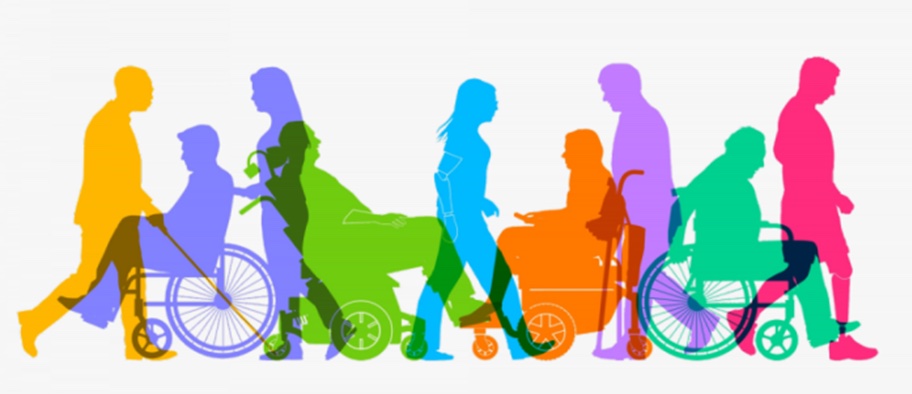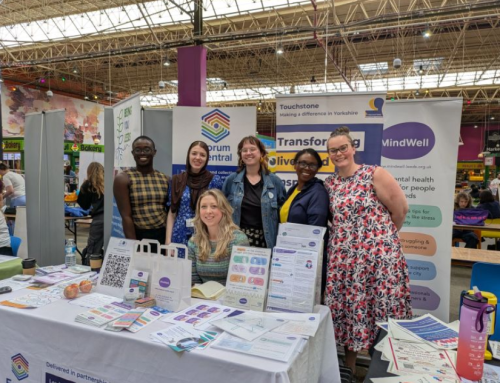Mentally Healthy Leeds, a Touchstone service, have undertaken research into Disability In the Pandemic, asking “How has the pandemic specifically affected the lives and mental health of disabled people in Leeds?” Read on to find out more…
This report looks into how disabled people have been particularly affected by the pandemic. We used a survey method to identify ways in which COVID and the policies and precautions associated with it have disproportionately impacted people living with various disabilities across a range of different areas. We aimed to capture both positive and negative parts of this experience whilst reflecting on the variety in participants responses.

Key Findings and Recommendations from the Report
Healthcare
- 57% of participants reported a worse experience of healthcare during the pandemic. The most common issues were difficulty getting appointments, and no longer having appointments in person. However, some responses also highlighted the increased availability of online and phone appointments as a positive.
- In this research we have seen that moving towards online and phone appointments have helped some but excluded others who have struggled to adapt to these approaches. Moving forward a hybrid approach offering online, phone, and in person support could give patients better support by improving the accessibility of healthcare.
Work
- 45% of participants said their experience of work improved during the pandemic. The main factor in this was the shift towards working from home, with many participants identifying it as an important adjustment which made work significantly more accessible. However, this was not a universal experience, with some participants feeling increasingly isolated when working from home.
- There remain significant challenges to be addressed, including adapting management and putting strategies in place to protect workers from isolation. Our view is that despite these challenges, the adaptations put in place by many workplaces gave an unprecedented opportunity to experiment with ways of working. From this we can learn what works and what doesn’t work and use that to inform more inclusive and accessible ways of working moving forward. We recommend that commissioned services lead by example, offering flexible ways of working and developing good practice which other employers can learn from.
Isolation and Loneliness
- 57% of participants said the way they socialised got worse during the pandemic, and 62% said that they were more lonely – most commonly this was tied to shrinking social circles and an inability to go out to in person events. Some participants said that the shift towards more things being online had been good for them but felt that a lot of that progress had been undone as the rest of the world moves back towards a ‘business as usual’ approach.
- We have an opportunity to use these tools and knowledge developed during the pandemic to build more accessible ways to socialise and reduce isolation and loneliness for many disabled people. Integrating online social spaces and activities into service delivery could play a valuable role in supporting disabled people’s mental health.
Afterthought
- 70% of participants said their experience in public spaces worsened, and 69% felt that the government hadn’t thought about them at all. This was a common theme throughout this research, with a theme of being overlooked or forgotten about popping in responses to questions throughout the survey, most prominently in the feedback around the accessibility of public spaces.
- Treating disability and accessibility as an inconvenience or an afterthought is a long term problem in decision making at every level. This is a key area where there remains important learning to be done to improve our inclusivity. For commissioners and service providers this could include a review of service accessibility and an explicit focus on disability when evaluating service provision.
Varied Experiences
- It was clear that different participants have very different disabilities, needs, and circumstances which shaped how the pandemic affected them. Changes which were positive adaptations for some created additional barriers for others. Above all, this report shows that there is no one-size-fits-all approach to improving accessibility, flexibility and individual approaches are vital to improving disabled lives.





